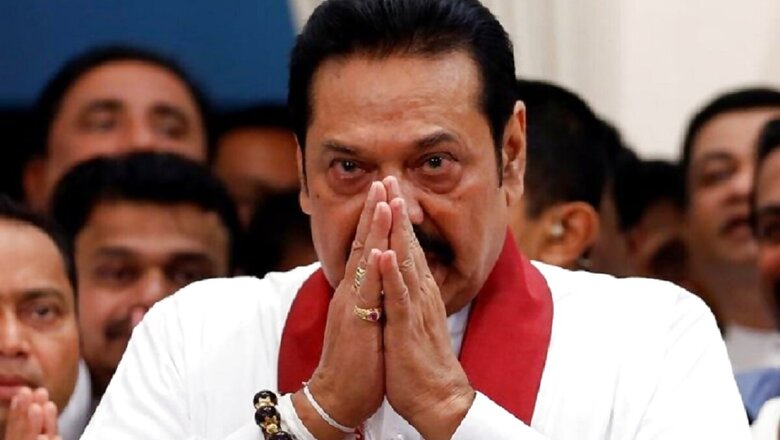Sri Lanka Writes Off Strategic Port Deal With India & Japan After Week-Long Protests Over 'Sell Out'

views
Sir Lanka Prime Minister Mahinda Rajapaksa’s office on Tuesday said that they scrapped the deal to develop a major port terminal with India and Japan amid weeks-long protests by trade unions and opposition parties.
Sri Lanka had previously agreed to develop the strategic East Container Terminal (ECT) at the Colombo port with India and Japan. Under the deal, 49% of the terminal’s shares were to be owned by India and Japan while Sri Lanka’s Ports Authority would retain the majority stake. Now, the Sri Lankan government said it would instead develop the port’s West Container terminal with investment from India and Japan.
The Colombo port trade unions had opposed the proposal of investors from India and Japan buying 49 per cent stake in the ETC. They had demanded the ECT to remain 100 per cent owned by the SLPA as opposed to the 51 per cent. 23 trade unions had joined hands to oppose the port deal.
The unions took the stand that the proposed deal with India’s Adani Group was a sell out of the ECT. They launched industrial action urging to scrap the deal and the government to run the ECT operation as a 100 per cent government entity.
The unions mostly affiliated to the ruling Sri Lanka People’s Party (SLPP) forced the government not to go ahead with the deal.
President Gotabaya Rajapaksa recently said that stopping the deal would endanger the 66 per cent of Indian transshipment cargo handled by the ECT. Therefore, in order to remain competitive, the deal was needed.
However, in recent weeks, the trade unions were able to mount public opinion against the deal and even got support from government’s own politicians against it.
The Indian embassy in Colombo said India expects the timely implementation of the agreement the three countries signed in 2019.
The commitment of Government of Sri Lanka in this regard has been conveyed several times in the recent past, including at the leadership level. The Sri Lanka Cabinet also took a decision three months ago to implement the project with foreign investors, the embassy said in a response sent via WhatsApp.
Tension has been growing in Sri Lanka in recent weeks over the port deal among trade unions and opposition political parties who have demanded the government halt the plan to develop the terminal with India and Japan.
India, which considers the Indian ocean region to be its strategic backyard, has for years been worried by its rival China’s economic and political influence over neighbouring Sri Lanka.
China considers Sri Lanka to be a critical link in its massive Belt and Road global infrastructure building initiative and has provided billions of dollars in loans for Sri Lankan projects over the past decade. The projects include a seaport, airport, port-city, highways and power stations.
Critics say that the Chinese-funded projects are not financially viable and that Sri Lanka will face difficulties in repaying the loans.
In 2017, Sri Lanka leased a Chinese-built port located near busy shipping routes to a Chinese company for 99 years to recover the heavy burden of repaying the Chinese loan the island nation received to build it.
The facility is part of Beijing’s plan for a line of ports stretching from Chinese waters to the Persian Gulf. China has also agreed to provide a $989 million loan to Sri Lanka to build an expressway that will connect its tea-growing central region to the Chinese-run seaport.
Read all the Latest News, Breaking News and Coronavirus News here













Comments
0 comment